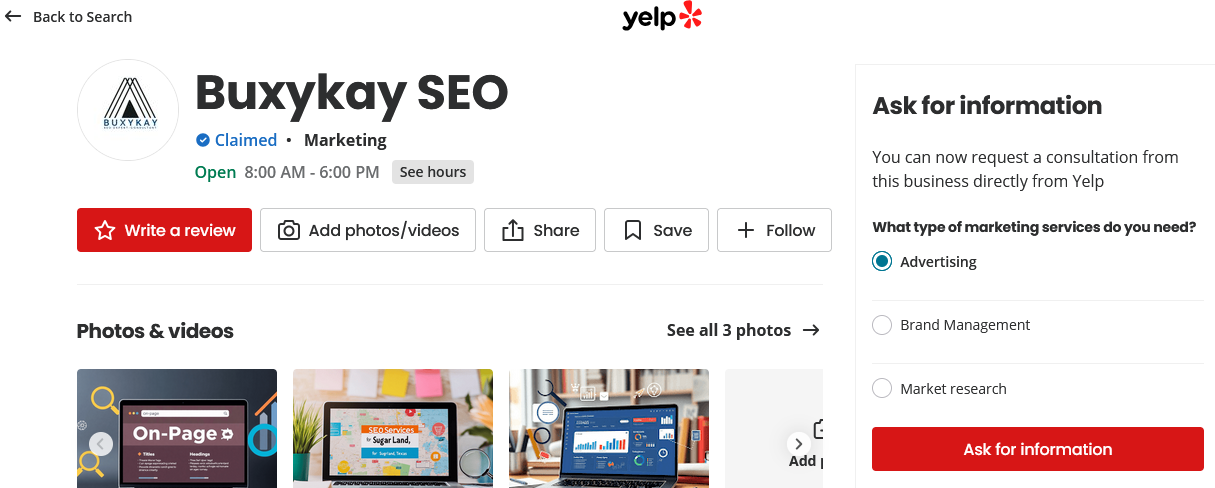Here’s a sobering reality: inaccurate citation for SEO costs local businesses approximately $10 billion in sales each year.
When your business information varies across the web, potential customers simply move on to competitors. The data proves this point—39% of consumers would choose a different business if address information was incorrect. Local citations SEO creates the foundation every successful local search strategy needs, helping search engines verify your business location and legitimacy. For businesses just getting started, these local SEO directories become essential for appearing in local search results at all.
The statistics paint a clear picture: 94% of consumers use online directories to find local businesses, and 87% read online reviews before making purchasing decisions. Yet most business owners find themselves overwhelmed trying to maintain accurate information across dozens of platforms.
Your NAP (Name, Address, and Phone number) needs to match exactly everywhere online. This consistency gives search engines the confidence they need to trust your business exists, which directly affects whether local customers discover you or your competitors instead.
This step-by-step guide covers everything you need to know about citations for local SEO—from the fundamentals to building a strategy that produces measurable results. We’ll get your business properly listed and visible to the customers actively searching for your services.
This Page Contains
1. What Are Business Citations and Why They Matter
Business citations create the foundation every successful local SEO strategy requires. Citations work differently than backlinks, serving a specific role in proving your business’s legitimacy and location accuracy. Understanding their importance becomes essential for anyone serious about online visibility.
Definition of a Citation in SEO
Citations represent online mentions of your business’s name, address, and phone number (NAP) on websites other than your own. These digital references appear across various platforms and function as validation points for search engines. Citations exist in two primary forms:
- Structured citations – Listings on business directories like Google Business Profile, Yelp, and industry-specific platforms that follow a standardized format
- Unstructured citations – Mentions in blog posts, news articles, or social media that include your business information without following a specific format
Most platforms accept just your NAP information as the minimum requirement, though they typically allow additional details such as website URL, business hours, and service descriptions. Think of these citations as modern digital “yellow pages” listings that establish your business’s online presence.
How Citations Impact Local Search Rankings
Citations play a direct role in how search engines evaluate your business’s credibility and relevance. They function as critical ranking signals for local search results. The data tells a compelling story:
- Citations rank among the top five most significant ranking factors for local pack visibility and fourth most important for local organic search results
- Businesses appearing on the first page of local search results typically maintain approximately 80 citations
- Different industries demand varying citation volumes – hotels average 152, dentists 107, and medical businesses 101
- 63% of consumers report that finding incorrect information would actively prevent them from choosing your business
Consistent citations across trusted platforms send clear signals to Google, improving their confidence about your business’s existence. The quantity, accuracy, and quality of your citations each influence how search engines evaluate your online presence.
Difference Between Local and Traditional SEO
Local SEO optimizes for geo-specific searches, while traditional SEO targets broader national or international audiences. Several key distinctions separate these approaches:
- Audience scope – Local SEO focuses on customers within specific geographic areas rather than nationwide searches
- Search intent – Local SEO serves queries with local intent, connecting users with nearby businesses
- Ranking factors – Traditional SEO emphasizes content, backlinks, and site authority, while local SEO adds proximity to searcher, reviews, and citation accuracy
Local SEO becomes critical when the Map Pack (the map with three business results) appears for your target keywords. Businesses serving customers face-to-face, whether at your location or theirs, find local SEO represents an essential marketing approach.
2. Where to Get Business Citations: Top Sources
Your citation strategy needs careful platform selection rather than random submissions everywhere. Right now, 31% of top 10 organic results for local searches come from business directories, which makes choosing the right ones critical for your visibility.
General Directories Like Yelp and Google Business

These major platforms create the foundation every citation strategy requires:
- Google Business Profile stands as your most important citation—it directly feeds Google Maps and local pack results
- Yelp holds significant authority and supplies business data to Apple Maps
- Facebook Pages work double duty as both citations and customer engagement tools
- Better Business Bureau brings extra credibility, especially valuable for service businesses
- Bing Places powers searches across PCs and Amazon devices
Niche-Specific Directories by Industry

Industry-focused platforms connect you with customers who already intend to buy:
- Healthcare providers: Healthgrades, Zocdoc, and Vitals function as essential digital storefronts
- Legal professionals: Avvo and Justia consistently rank well for legal search queries
- Home services: Angi, Houzz, and Thumbtack directly connect homeowners with contractors
- Hospitality businesses: TripAdvisor and OpenTable significantly influence booking decisions
Local SEO Directories and Chambers of Commerce
Community-focused platforms strengthen your geographic relevance:
Chamber of Commerce listings provide credibility plus hyperlocal trust signals
Local.com emphasizes community connections and neighborhood-level discovery
Manta specifically serves small businesses with robust directory features
Using Citation Aggregators for Broader Reach
Data aggregators spread your information across multiple platforms at once:
Foursquare operates one of the world’s largest location databases, reaching 500 million devices
Data Axle supplies business information to major search engines and navigation systems
Neustar Localeze distributes data through the largest authorized local search platform network
The most effective approach combines these different citation sources to build comprehensive online presence that validates your business legitimacy for both search engines and potential customers.
3. How to Build and Submit Citations Step-by-Step
Building effective citations for SEO demands a systematic approach that guarantees accuracy across every platform. Here’s exactly how to execute this process correctly.
Step 1: Prepare Your NAP and Business Info
Start by standardizing your business information before submitting to any platform. This groundwork matters because:
- Perfect consistency in your Name, Address, and Phone number (NAP) across all platforms becomes non-negotiable
- Minor variations like abbreviating “Street” to “St.” confuse search engines and customers alike
- 73% of consumers lose trust in businesses with incorrect listing information
- Build a master document containing your standardized business information:
- Business name (exactly as displayed on signage)
- Complete physical address
- Local phone number (avoid call centers)
- Website URL
- Business hours
- Brief, keyword-rich description
Step 2: Submit to Google Business Profile
Google Business Profile deserves your immediate attention as the most critical citation:
- Claim and verify your business through Google’s verification process
- Enter complete, accurate information matching your master document perfectly
- Upload high-quality photos and choose appropriate business categories
- Add service areas and payment options when relevant
- Google Business Profile feeds information directly to Google Maps and local search results
Step 3: Use Tools Like BrightLocal or Whitespark
Citation management tools can accelerate your progress significantly:
- BrightLocal offers citation building from approximately $2 per site submission
- Whitespark provides a Local Citation Finder for discovering quality citation opportunities
- SEMrush Listing Management distributes listings to authoritative global directories
- These platforms automate updates, enable bulk editing, and provide monitoring alerts
- Manual citation building requires approximately 15-20 minutes per site
Step 4: Submit to Top Local Citation Sites
Expand your citation footprint to other essential platforms:
- Begin with core directories: Yelp, Bing Places, Apple Maps, and Yellow Pages
- Submit your business to data aggregators like Data Axle and Neustar Localeze
- Target industry-specific directories that serve your business niche
- Secure listings with local Chamber of Commerce and community business associations
- Complete verification through each platform’s required methods (email, phone call, or postcard)
Step 5: Add Citations to Social Media and Maps
Complete your citation profile with social and mapping platforms:
- Establish business profiles on Facebook, LinkedIn, and Instagram
- Submit your business to Apple Maps through Apple Business Connect
- Maintain consistent NAP information across every social media account
- Monitor and respond to reviews on these platforms actively
- Update information promptly whenever your business details change
4. Keep Your Citations Accurate and Up to Date
Poor citation maintenance destroys SEO progress faster than most business owners realize. Years of careful citation building can crumble when outdated information spreads across the web, directly harming your local search rankings and customer trust.
Why NAP Consistency is Critical
NAP consistency serves as the bedrock of effective local SEO strategy:
- Inconsistent business information creates confusion for both customers and search engines
- 73% of consumers lose trust in brands when they encounter inaccurate business listings
- Discrepancies in NAP data send negative signals that hurt search engine rankings
- Over 43% of US businesses have at least one incorrect or missing address in major directories
How to Audit and Fix Incorrect Listings
Regular citation audits protect against ranking damage:
- Schedule quarterly reviews across all platforms where your business appears
- Hunt down duplicate listings first—merge or remove them immediately
- Claim unverified listings before competitors can alter your information
- Focus on fixing authoritative data providers first, then tackle secondary directories
Tools to Monitor and Manage Citations
Citation management tools make maintenance manageable:
- Moz Local tracks inconsistencies and handles automated updates
- BrightLocal’s Citation Tracker spots discrepancies across platforms
- Whitespark delivers ongoing citation monitoring services
- EmbedSocial provides single-dashboard management for multiple locations
Avoiding Scams and Unnecessary Monthly Fees
Stay alert against deceptive citation services:
- Watch for imposter scams claiming to represent Google or other platforms
- Verify citation services use official email domains (e.g., @sba.gov for government agencies)
- Skip services demanding upfront payments for “guaranteed” approval
- Remember that legitimate citation audits never charge fees for basic business information verification
Let Me Wrap Up
Business citations represent the foundation every local business needs to succeed online. This guide has shown you exactly how consistent NAP information affects your visibility and builds the trust customers need to choose your business over competitors.
Your path forward starts with Google Business Profile—get this right first, then expand methodically to the directories that matter most for your industry and location. Citation building demands patience and precision, but the results speak for themselves when done properly. Each accurate listing strengthens your business’s credibility with search engines and potential customers alike.
Don’t let your citation maintenance slide once you’ve built your initial profile. Regular audits catch problems before they hurt your rankings, and quality citation management tools make this process manageable. Watch out for the scams that target busy business owners—legitimate citation work doesn’t require suspicious upfront fees or pressure tactics.
What I’ve learned after years of helping businesses improve their local search presence is this: citations work best when they’re part of a broader commitment to accuracy and customer service. The businesses that succeed long-term treat their online listings with the same care they show customers walking through their doors.
Your customers are searching for businesses like yours right now. The citation strategy you implement today determines whether they find you or settle for a competitor instead. Take action on these fundamentals, stay consistent with your approach, and give your business the local search visibility it deserves.
